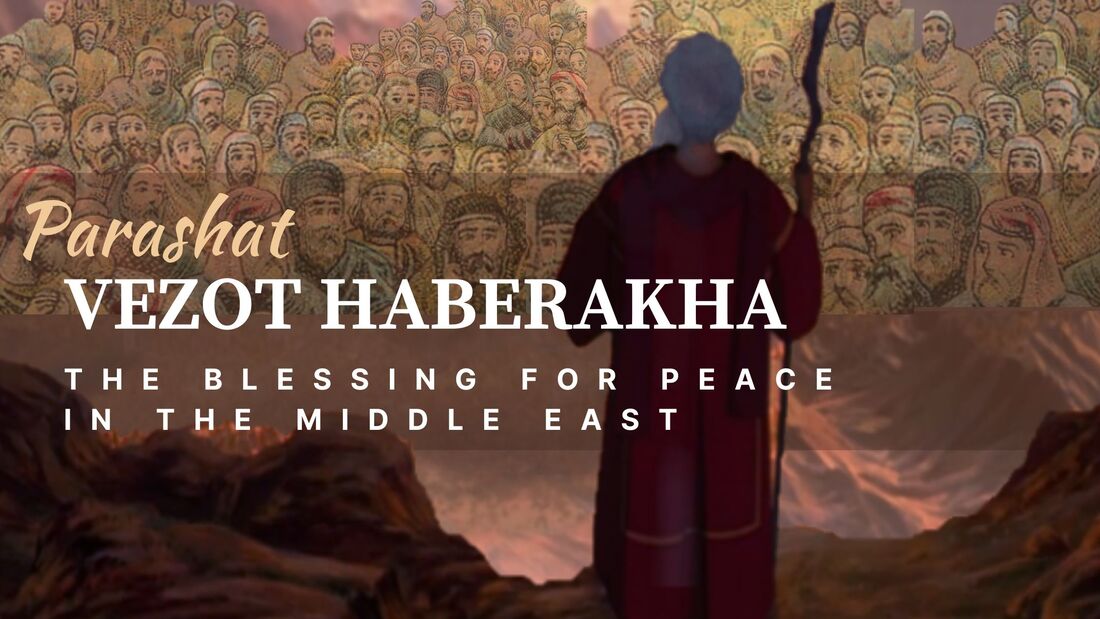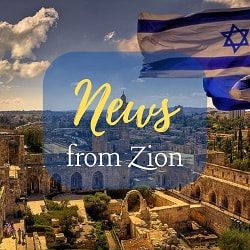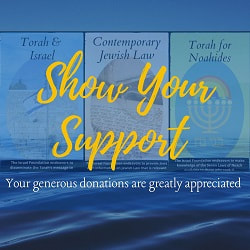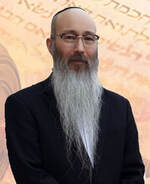|
By: HaRav Menashe Sasson Reporting from Jerusalem, Israel Published in the U.S.A. Parasha Vezot HaBerakha ([וזאת הברכה] “And this is the blessing”), the last Parasha in the Torah, contains the recipe for peace in the Middle East. The Parasha begins with Moshe Rabbeinu, whose death is imminent, blessing the Jewish people as a whole. Following this general blessing, Moshe Rabbeinu then addressed each tribe individually, giving each both blessing and prophecy. After concluding the blessing of each individual tribe, Moshe Rabbeinu then turns to and addresses the entire nation one last time, and saying:
Debarim 33:27-29. The Or HaHayyim wrote, “[W]hen does this situation [of Yisra’el dwelling in safety] occur? When they live in isolation. . . . As a result of fulfilling this instruction [of driving out the nations] Yisra’el would be assured of dwelling safely in the Holy Land.” Or HaHayyim, commentary to Debarim 33:27-29. The command to drive out the nations who, prior to the Jewish people, possessed Eretz Yisra’el, is not a command which was limited to Biblical times. The Or HaHayyim wrote that:
Abarbanel, Commentary on Shemot 34:11-12. Immediately after giving the Jewish people the blessing for peace, Parasha Vezot HaBerakha, the final Parasha of the Torah, concludes with Moshe Rabbeinu, the only leader the Jewish people had known up to that time, making final preparations for his death:
Debarim 34:1-5. The sentence immediately preceding the death of Moshe Rabbeinu restates that Eretz Yisra’el “is the land which [HaShem] swore to Abraham, to Yizhaq, and to Ya’akob, saying I will give it to thy seed.” But why did HaShem give Eretz Yisra’el to the Jewish people? The reason, of course, was revealed by HaShem at Mount Sinai, shortly before the giving of the Torah, when he said, “And now, if you will obey My voice and keep my covenant, you shall be to Me the most beloved treasures of all peoples, for Mine is the entire world. You shall be to Me a kingdom of priests and a holy nation [ממלכת כהנים וגוי קדוש].” Shemot 19:5-6. The question that logically follows is: What can Medinat Yisra’el – the State of Israel, which in its legal documents proclaims itself to be both a “Jewish state” and a “democracy,” do to bring itself closer to becoming the “kingdom of priests and a holy nation [ממלכת כהנים וגוי קדוש]” which is envisioned by the Torah? The following proposed laws for Medinat Yisra’el are the ingredients for Vezot HaBerakha’s recipe for peace in the Middle East:
May we, the Jewish people, without further delay, achieve our purpose in life by becoming the kingdom of priests and a holy nation [ממלכת כהנים וגוי קדוש] that HaShem desires. שבת שלום Shabbat Shalom! Copyright © The Israel Foundation. All Rights Reserved.
0 Comments
Your comment will be posted after it is approved.
Leave a Reply. |
THE ISRAEL FOUNDATION





